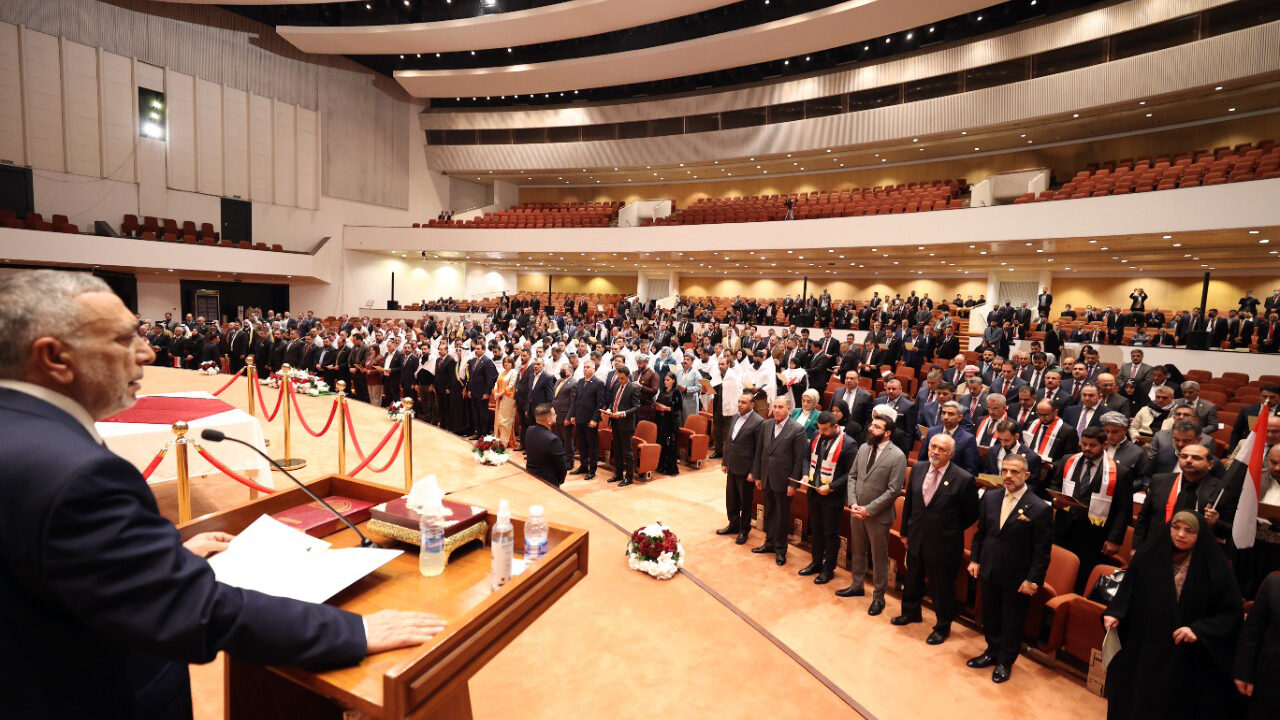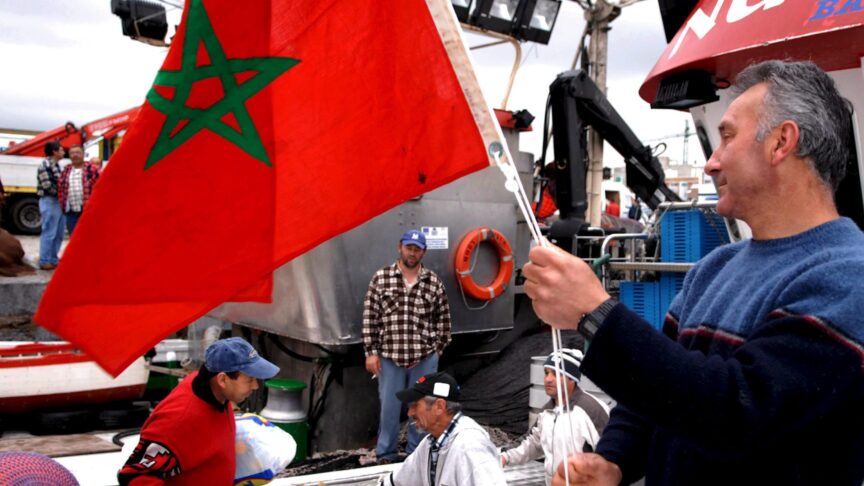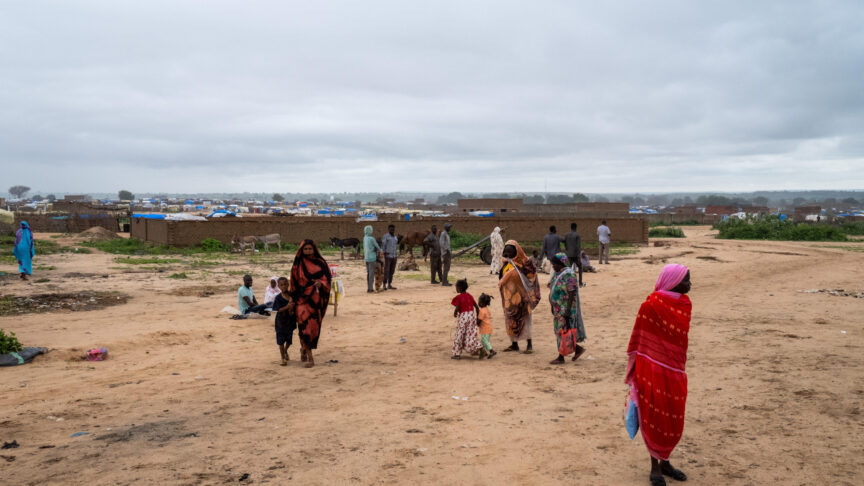Stall or nothing: Iraq’s failure to form a new government
Iraq’s recent election upended the informal political agreement that had dominated its politics since 2003. European countries should press Iraqi leaders to break the current deadlock in parliament
Six months after Iraqis voted in a snap parliamentary election, the caretaker government of Prime Minister Mustafa al-Kadhimi – which began as an interim government – remains in office. The vote was originally scheduled for spring 2022, but took place earlier to meet the demands of a nationwide protest movement. Lengthy government formation processes are the standard in Iraq. However, the current stalemate is undermining the stability of the country and degrading the legitimacy of the state. European governments that have invested politically and economically in Iraq over recent years should push all sides to overcome the impasse.
This current process of government formation is not only longer than the post-2003 average of five and a half months but has also stalled after the election of a speaker of the Council of Representatives – which is unusual. In previous government formations, months-long deliberations were followed by the successive elections of the speaker, the president, and – finally and most contentiously – the prime minister. This time, Mohammad al-Halbousi was re-elected as speaker in January. Three months later, Iraqi MPs have been unable to organise into the two-thirds parliamentary majority required for the election of the president.
Iraq has been at a political standstill before, but never for the current reasons. Despite what many in the international community believe, the obstruction does not centre on relationships with Iran – which will be influential in Iraq regardless of which political coalition rules. The main problem is that Iraq’s established political parties are unwilling to come together to form a broad consensus government as has usually been the case. The winner of the election, Muqtada al-Sadr, holds 73 of the 329 seats in the Council of Representatives, but is adamant that he will not participate in yet another consensus government. Although his Sadrist movement won far fewer seats in previous elections, it was then willing to join such governments.
This time, Sadr seeks to form a government with the leading old-guard Kurdish party, the Kurdistan Democratic Party (KDP), and the Sunni Siyada (Sovereignty) Alliance. In doing so, he seeks to exclude other Shia parties – and his long-time nemesis Nouri al-Maliki – who have united under the Coordination Framework, as well as the other major Kurdish party, the Patriotic Union of Kurdistan (PUK). Sadr believes that, thanks to the seats he holds with this tripartite coalition, he has an opportunity to monopolise the Shia share of the political spoils. His ally, Masoud Barzani of the KDP, sees a similar opportunity with regards to the Kurdish share.
While this would be different to Iraq’s previous consensus governments, it would not be the political change that Sadr and his allies have promised their supporters and members of the protest movement. It would still be a coalition government that was split across multiple political parties and that was based on the same informal system of allocating government positions along ethno-sectarian lines. It would be not so much a reform as a bid for power, which would not satisfy Iraq’s disenchanted and protest-minded citizens.
It is a serious matter to upset the informal political agreement that has dominated post-2003 Iraq. The country lacks a culture of opposition in the Council of Representatives. And, if a majority government did not perform significantly better than previous governments, that would further erode public trust in political reform. This would be particularly harmful given that this election has paved the way for a true opposition not of traditional parties but of new reformist parties and independents, which have won an unexpectedly high number of seats. More alarmingly, major political parties control armed groups that would not want to miss out on the benefits of state capture for four years. These groups’ proclivity for violence was on display after protests against unfavourable election results turned violent, prompting them to attack the residence of the prime minister.
Iraqi political leaders would be foolish to believe that they are safe from the effects of Russia’s war on Ukraine.
This shift also changes the power dynamics in the Kurdistan region of Iraq, where the KDP dominates the regional government in exchange for the PUK controlling the Iraqi presidency. Although the presidency is often viewed as symbolic, it has provided the PUK with access to all federal ministries, as well as influence on foreign policy. Forcing the PUK out of the presidency, as the tripartite coalition wishes to do, would weaken it significantly and change the political dynamic between the two major Kurdish parties. This could spark a political conflict that devolved into violence. The PUK has gradually lost seats in the last two federal elections, but it maintains military control of Sulaymaniyah governorate. The Kurds are no strangers to internal conflict, having fought a civil war between 1994 and 1998.
Meanwhile, Iraqi political leaders would be foolish to believe that they are safe from the effects of Russia’s war on Ukraine. Neighbouring countries Syria, Iran, and Turkey all have strong relations with Russia. And major Russian oil companies operate in Iraq, which exports more than three million barrels of oil per day. The war distracts Russia from Syria and creates a larger role for both Turkey and Iran there. Instability in Syria has severe repercussions for Iraq.
For years, Iraqis have protested to demand better services and employment. The government’s capacity to provide services and create jobs requires a federal budget. The caretaker government could pass a budget, but it has little appetite to do so because it does not want to be accused of handcuffing its successor to rules it did not write. At the same time, Iraq’s record-high oil revenues caused by the spike in global energy prices have increased demand for public employment. So long as the political impasse continues, the pressure on the government will mount.
In these turbulent times, the Iraqi political class needs to end the standstill swiftly. The European Union and its member states are among the largest development aid donors in Iraq, but their appetite for supporting an upper-middle-income country is diminishing thanks to the war on their own continent. The European states that are most heavily engaged in Iraq need to press Iraqi leaders to come to an agreement, pass a federal budget, and invest in their country’s development.
Hamzeh Hadad is a Baghdad-based political analyst and a former adviser to the president of the Trade Bank of Iraq.
The European Council on Foreign Relations does not take collective positions. ECFR publications only represent the views of their individual authors.



